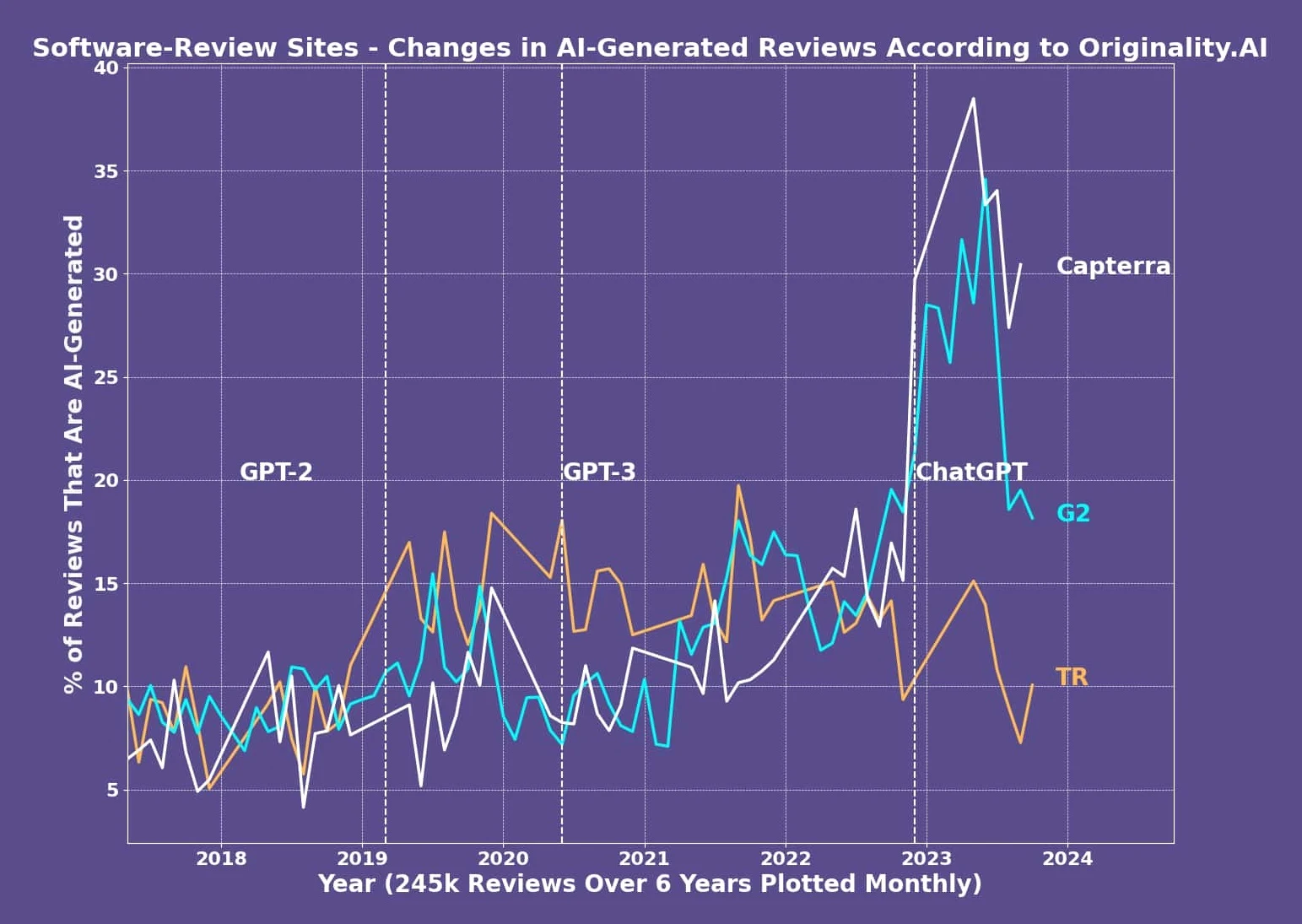Since new AI writing tools came out, there's been a big jump in reviews written by artificial intelligence (AI) on websites that talk about software for businesses. Sites like Capterra, G2, and TrustRadius are where users go to read these reviews. The good folks over at OriginalityAI looked at 245,000 reviews on these sites to see which ones might have been written by AI.
They found out that between 10% to 30% of reviews after these AI tools started being used could be from AI. Reviews with the best scores are more likely to be from AI. This means that some products might seem better than they are because of these AI reviews.
Capterra, G2, and TrustRadius all had more AI reviews in the past four years. Before AI tools got popular, less than 10% of reviews were from AI. But after these tools came out, the number of AI reviews went up. TrustRadius, however, has seen a drop in AI reviews recently. They say this is because they don't accept many reviews and are careful about which ones they think are real.
G2 and TrustRadius have seen fewer AI reviews lately. Before the latest AI tool, ChatGPT, came out, Capterra's AI reviews more than doubled. G2 also saw a big increase. But TrustRadius had fewer AI reviews after ChatGPT came out. This shows that some websites are trying to fight against the rise of AI reviews.
The problem is that if many reviews are from AI, it's hard to know if the feedback on products is real. Some of these AI reviews might be based on real user experiences, but it's tricky to tell. Websites are using tools to spot AI-written reviews, but there are still a lot of them. Capterra, for example, saw a big jump in AI reviews recently. This situation makes it hard for people looking for honest opinions on software.
Read next: Powering AI May Force Tech to Burn More Fossil Fuels
They found out that between 10% to 30% of reviews after these AI tools started being used could be from AI. Reviews with the best scores are more likely to be from AI. This means that some products might seem better than they are because of these AI reviews.
Capterra, G2, and TrustRadius all had more AI reviews in the past four years. Before AI tools got popular, less than 10% of reviews were from AI. But after these tools came out, the number of AI reviews went up. TrustRadius, however, has seen a drop in AI reviews recently. They say this is because they don't accept many reviews and are careful about which ones they think are real.
G2 and TrustRadius have seen fewer AI reviews lately. Before the latest AI tool, ChatGPT, came out, Capterra's AI reviews more than doubled. G2 also saw a big increase. But TrustRadius had fewer AI reviews after ChatGPT came out. This shows that some websites are trying to fight against the rise of AI reviews.
The problem is that if many reviews are from AI, it's hard to know if the feedback on products is real. Some of these AI reviews might be based on real user experiences, but it's tricky to tell. Websites are using tools to spot AI-written reviews, but there are still a lot of them. Capterra, for example, saw a big jump in AI reviews recently. This situation makes it hard for people looking for honest opinions on software.
Read next: Powering AI May Force Tech to Burn More Fossil Fuels

